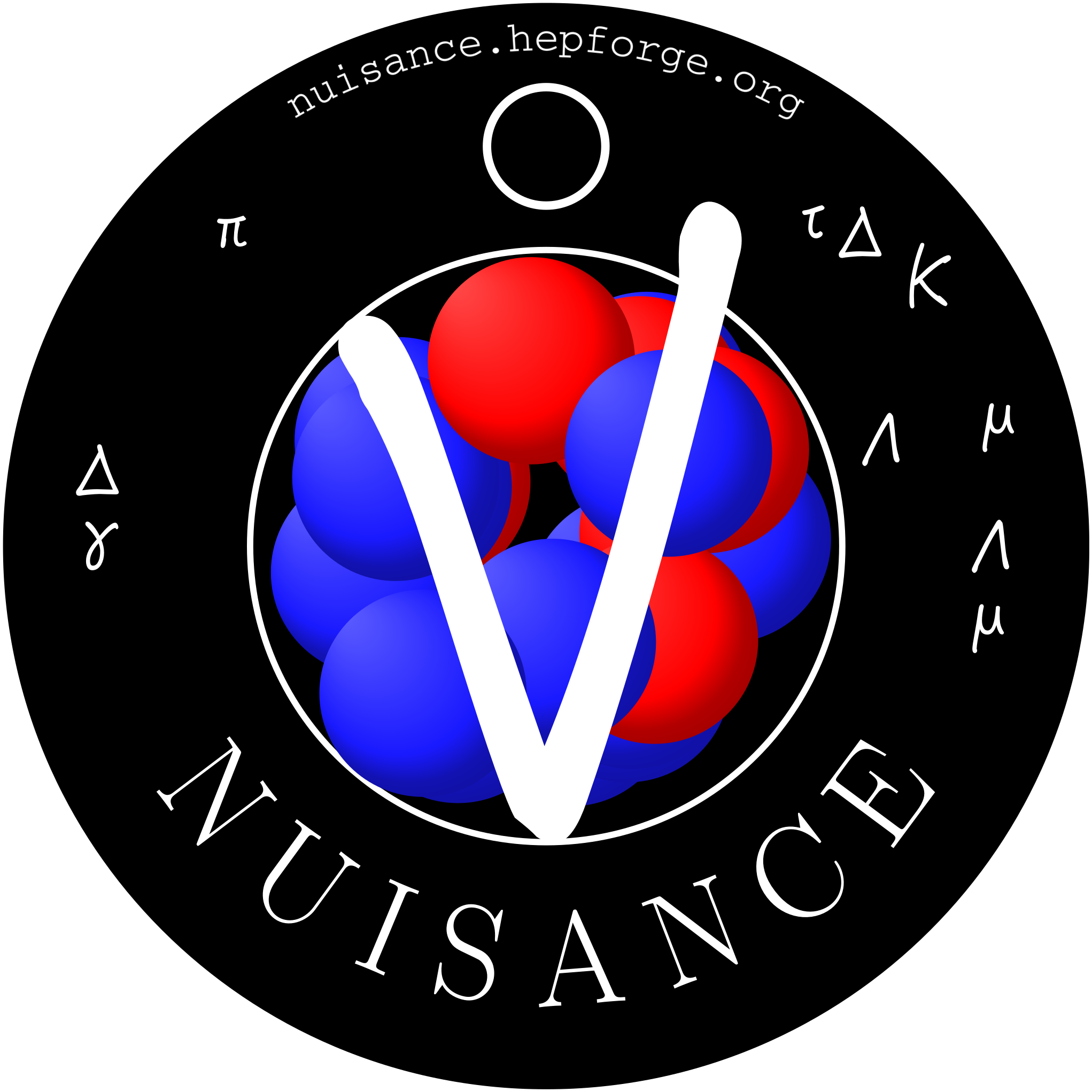|
|
close
Warning:
Can't synchronize with repository "(default)" ("(default)" is not readable or not a Git repository.). Look in the Trac log for more information.
- Timestamp:
-
Sep 3, 2016, 1:50:25 PM (9 years ago)
- Author:
-
Clarence Wret
- Comment:
-
--
Legend:
- Unmodified
- Added
- Removed
- Modified
-
|
v10
|
v11
|
|
| 17 | 17 | |
| 18 | 18 | * Neutrino mode |
| | 19 | * L.A. Ahrens et al, Determination of the neutrino fluxes in the Brookhaven wide-band beams, Physical Review D, Volume 34, Number 1, 1 July 1986 |
| | 20 | * This uses a dedicated "flux measuring detector" placed in the AGS. It has different radial extent to the original bubble chamber, so shouldn't be used for the bubble chamber flux. However, the paper claims good data-simulation agreement, which adds credibility to the bubble chamber flux. |
| | 21 | |
| 19 | 22 | * Baker et al., Quasielastic neutrino scattering: A measurement of the weak nucleon axial-vector form factor, Physical Review D, Volume 23, Number 11, 1 June 1981, 2499 |
| 20 | 23 | * Comes from fitting CCQE events with MA=1.07 with not full data-set |
| 21 | | * L.A. Ahrens et al, Determination of the neutrino fluxes in the Brookhaven wide-band beams, Physical Review D, Volume 34, Number 1, 1 July 1986 |
| 22 | | * This uses a dedicated "flux measuring detector" placed in the AGS. It has different radial extent to the original bubble chamber, so shouldn't be used for the bubble chamber flux. However, the paper claims good data-simulation agreement, which adds credibility to the bubble chamber flux. |
| | 24 | |
| 23 | 25 | * K. Furuno et al., "BNL 7-foot Bubble Chamber Experiment -- Neutrino Deuterium Interactions, Proceedings of the Second International Workshop on Neutrino-Nucleus Interactions in the Few-GeV Region (NuInt02), To be published in Nucl. Phys. B (Proc. Suppl.)", December 12-15, 2002, UC Irvine, USA, KEK Preprint 2003-48, September 2003, II |
| 24 | | * This is the flux which we use for BNL. It uses CCQE events with double statistics to the above and a fit with MA = 1.1 GeV to determine the incident neutrino flux. _Beware of using these sorts of methods!_ |
| | 26 | * This is the flux which we use for BNL. It uses CCQE events with double statistics to the above and a fit with MA = 1.1 GeV to determine the incident neutrino flux. '''Beware of using these sorts of methods! In correcting the total cross-section by using the CC1pi+/CCQE ratio, Wilkinson and Rodgriguez found that the BNL total cross-section correction was large (arxiv:1411.4482v1)''' |
| 25 | 27 | |
| 26 | 28 | * Anti-neutrino mode |
|
